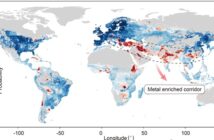The Natural Environment Research Council (NERC) has awarded £6 million to investigate the effects that potentially hazardous chemicals used by humans are having on UK habitats and wildlife.
A workshop co-hosted by NERC, including representatives from government, regulation and industry, concluded that vital research needs to be done to understand the impact that new chemicals and combinations of chemicals are having on our ecosystems, and the animals and plants that depend on them.
With new chemicals constantly being used in agriculture, industry and everyday life, this research not only hopes to uncover unforeseen effects, but also to devise a new way for testing these impacts that can be applied to all types of ecosystems found in freshwater, at sea and on land.
The current standard method of testing determines how toxic individual chemicals are but is unable to look at the combined effects of a mixture of chemicals, which can be quite a different picture.
NERC Associate Director of Research, Ned Garnett, said: “Healthy and productive terrestrial, freshwater and marine ecosystems are vital to the economy and wellbeing of the UK. They play a key role in areas such as food production, providing clean water, absorbing carbon from the atmosphere and supporting sustainable fish stocks, as well as supporting our wildlife. This research will provide new evidence on how chemicals used in farming, industry and everyday life are impacting on these environments.”
The grants were awarded to teams led by Professor Andrew Johnson and Dr David Spurgeon, both of the NERC Centre for Ecology & Hydrology (CEH), and Professor Guy Woodward at Imperial College London.




